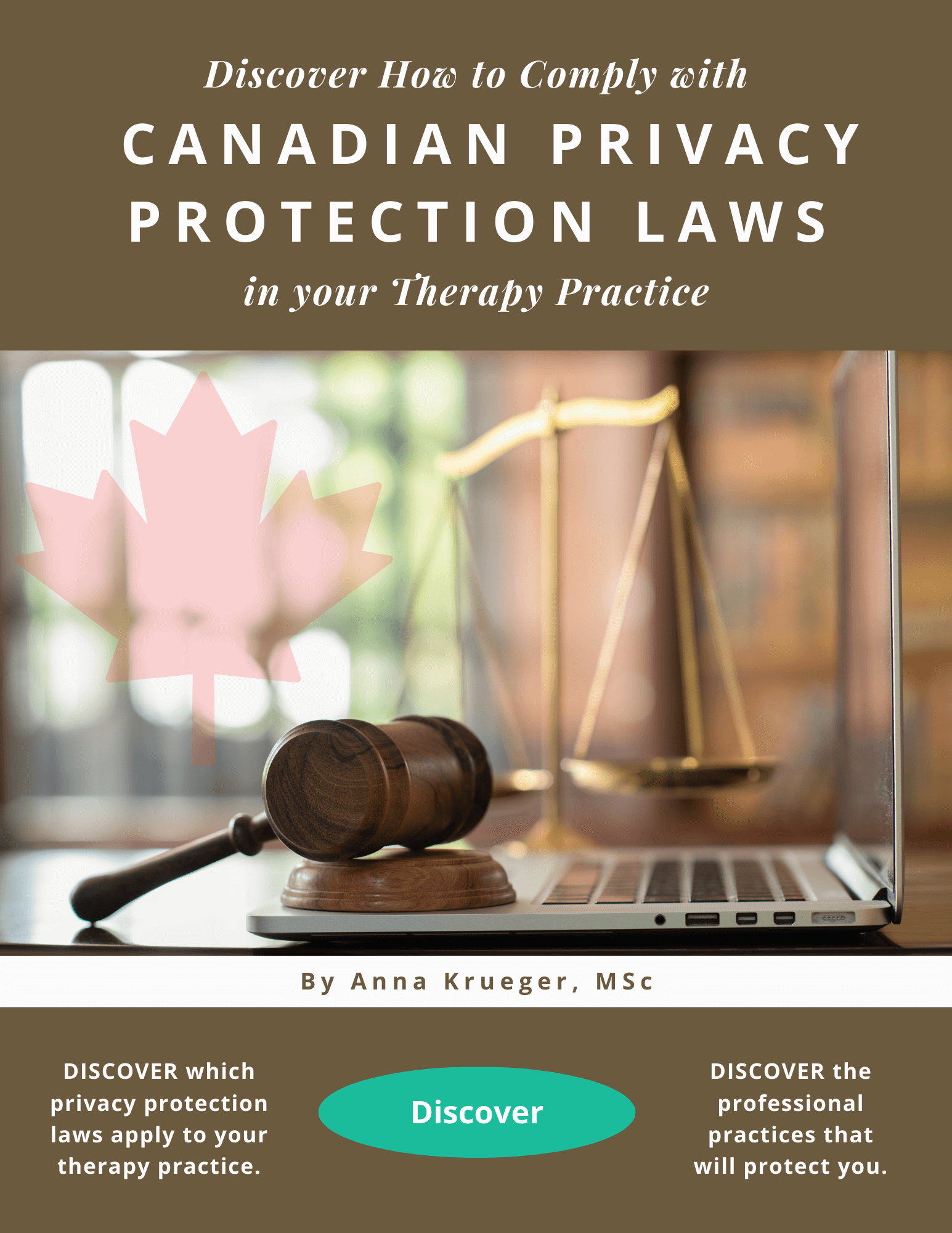
You need to know when to ask for consent.
Q: What does informed consent entail?
Informed consent entails informing the client about what will be collected and details about the type and number of services that will be provided. For SLP’s, it is a good idea to use the words assessment and therapy since this is how funders define SLP services.
Q: Should my clients give consent for telepractice service delivery?
Yes, your clients need to know what to expect. Your referral process, your consent forms and your contracts should provide all the necessary details in writing.
Q: What does consent for the release of information entail?
This consent is for collecting information and for disseminating information. The client should indicate which people or agencies are permitted to receive information from you. This applies to verbal, written and electronic communication.
Likewise, if you want to obtain information about a client from another professional or agency you need to provide a Consent for Release of Information form when you request the information. Even if the client wants a copy of their own data, they must request it formally and provide signed consent.
Q: When is a consent for services needed by clients accessing services from a public organization?
Consent for basic services offered by a public organization is assumed. For example, if a member of the public arrives at a hospital or if a child is enrolled in a school, it is assumed that the person wants the basic services offered by that organization. It should be noted, however, that non-residents may not be eligible for publicly funded services. They may need to pay privately in order to access those services.
Because the data collected belongs to the organization, the employees within that organization can collaborate and make decisions. For example, hearing screening is conducted in newborn nurseries and follow up is determined. Reading readiness screening takes place in schools and students are given learning assistance. Often screening programs have internal follow-up but no reports. The client or family may not even be aware that an assessment has taken place and treatment decisions have been made.
Essentially, the process of narrowing enquiries down to qualified prospects occurs seamlessly inside many public organizations. They might not call it by this name.
It is important for public organizations to define the services that go beyond basic services. Simply put, these are services that members of the public are not expecting. These are services that are only offered to people who need them, qualify for them and give consent for them. The client or family members should be made aware of the risks and benefits, and they should be involved in the decision. This is referred to as informed consent for services.
A hospital might require consent to do surgery. A school might require consent to do a psycho-educational assessment.
Does this mean that public agencies should ask for consent to offer telepractice services? Yes, if the client is expecting face to face services and the service provider is recommending telepractice services, this change requires consent. In addition, the client should be informed of the benefits, the risks and the safeguards in place to protect the confidentiality of the data.
Q: Can a teacher ask me questions about a student who is not on my caseload? Can I provide advice about a client if I have not asked for consent?
Professional communication within a workplace is normal; however, you are not permitted to reveal personal information about a client to anyone outside of your public organization or private business without consent. Be very careful about all your interactions. Privacy laws apply no matter what form of communication you use.
I was a service provider for a number of distance learning schools. The schools had contracts with my company. I was not their employee. Some of my students had large treatment teams which included teachers, assistants and other private service providers.
All phone calls that came to my office automatically went to voicemail. I asked team members to use my online scheduler to book phone calls. This helped me avoid phone tag and gave me a chance to ask the family for consent before I spoke to the person.










